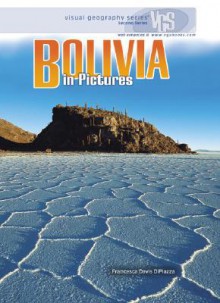
I wasn’t sure about this book, which is long, little-known, and apparently only available in the original Spanish. But it presents an interesting story, if a meandering one; it’s semi-autobiographical, and more fictionalized biography than tightly-plotted novel. Carmela Macker is born into a well-off socialist family in Cochabamba in the the mid 20th century, becomes a guerrillera as a teenager, experiences love and tragedy, has several lovers and two daughters, becomes a journalist, runs for political office, and goes into and out of exile in a variety of Latin American countries as Bolivia goes through periods of dictatorship and democracy. The book’s timeline starts out scattered – going right from Carmela’s birth to the abrupt departure of her partner of many years in middle age – but around 50 pages in, it settles into a chronological structure that persists for the rest of the book.
It’s an interesting story, consisting primarily of short chapters, and with a lot of ground to cover the plot doesn’t ever linger for long in one place. It’s primarily told from Carmela’s third-person perspective, though on a couple of occasions it tells the stories of other guerrilleras whose connection to Carmela is tenuous, but whose capture by the military government exposes them to horrors that Carmela herself never experiences. There’s not a lot of physical action – situations that would have been milked for additional drama in a purely imaginative drama resolve themselves more quietly here – but there’s always a lot going on in Carmela’s life and the political realm in which she operates. I learned a fair bit about Bolivian history, though the author is perhaps not an entirely objective source; while Carmela ultimately leaves partisan politics, there were a few passages that made me wonder, such as the view of food rationing as a necessary sacrifice for the greater good during her time in exile in Cuba.
Even so, I was glad to read this book; Bolivia is a fascinating country about which not much has been written, and although this presents only one economically privileged perspective, it was still great to get an insider’s view of the country. I didn’t always like Carmela or agree with her choices – in particular, her embarking on an affair with a married playboy when she has a partner and young daughter at home, all presented as if she were powerless to stop herself from giving in and falling in love – but I found it to be a lively, readable story, full of political and personal reversals and characters who, one way or another, are always able to adapt. It’s too bad this hasn’t been translated to English, but for those who are able to find and read it I think it is worth the effort.

 Log in with Facebook
Log in with Facebook 







